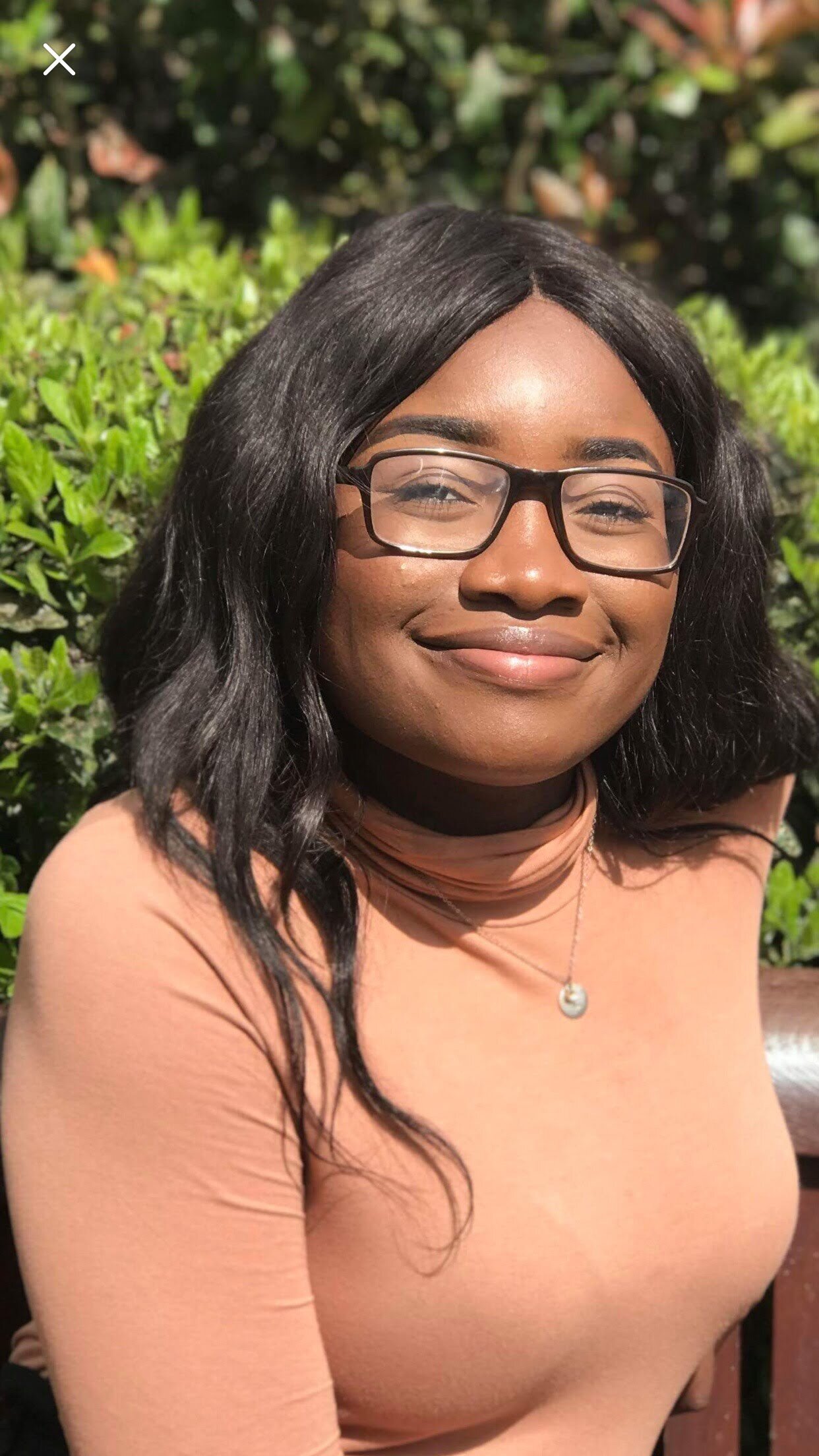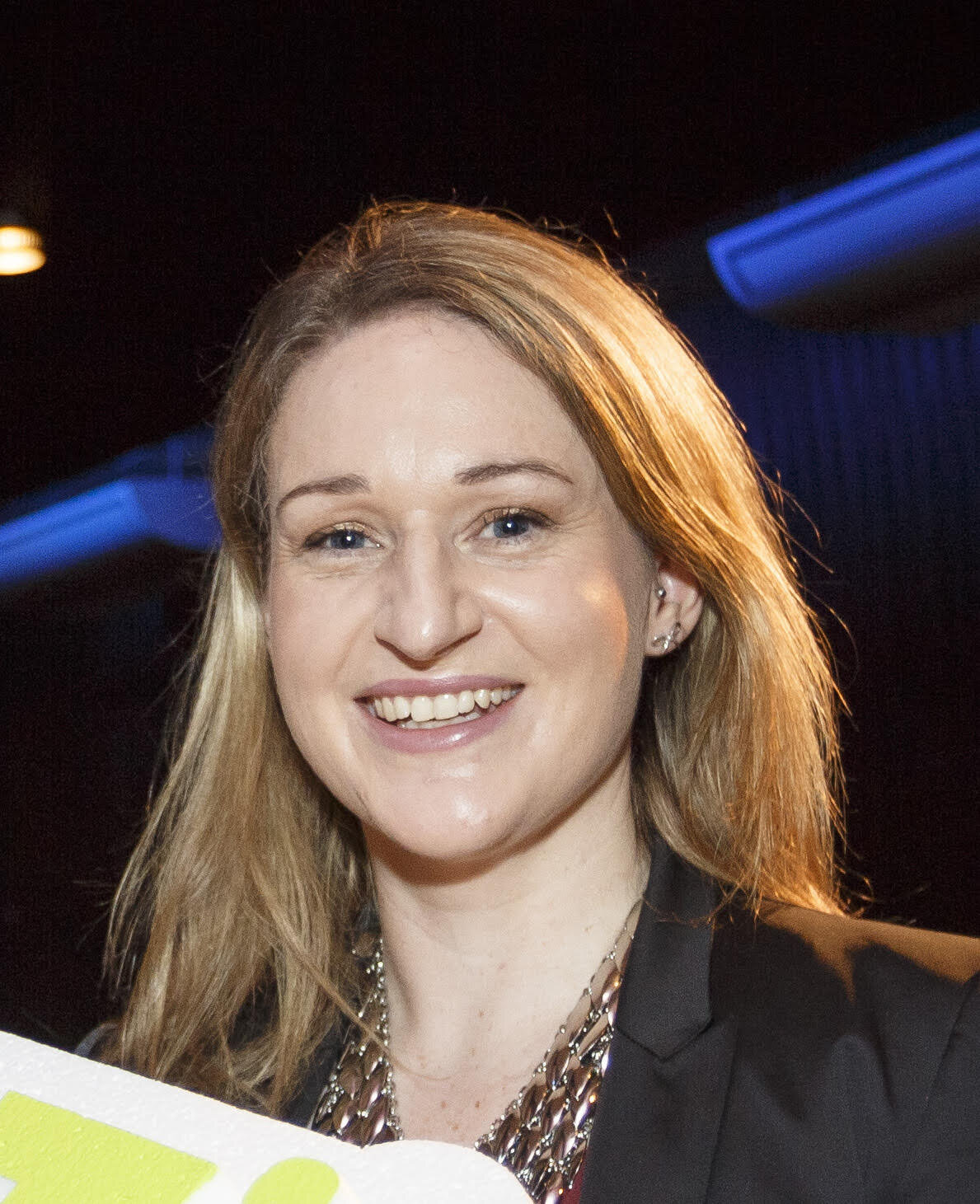Student of Medicinal Chemistry and Chemical Biology
Shekemi Denuga by Adrienne Geoghegan
Twenty-year old Nigerian-Irish woman, Shekemi Denuga, has always enjoyed ‘a really good challenge.’ As a child she was ‘curious about everything, from why people have different eye colours, to what things are made of.’ While Denuga did not have many role models growing up, her father’s emphasis on education steered her in the same direction and a good education became a top priority for her. As she got older, science became a lot more than a subject to her; it became her passion.
This passion was further fostered in secondary school (Coláiste Bríde, Clondalkin) when Denuga became involved in the Young Social Innovators Community Programme. Along with a group of other young people, Denuga developed a ‘Breaking Boundaries’ scheme with the aim of ‘changing perceptions, promoting unity and making connections within our community.’ The initiative was launched by inviting various different groups of people to the school to speak about their own experiences and the issues they faced within the community. They also held a ‘positive day’ which included writing post-its of encouragement on every locker, among other things, to inspire positivity.
‘It took time for me to truly realise I belonged.’
Despite organising positive initiatives such as the one above, Denuga herself faced a lot of ‘self-made barriers of self-doubt and feeling inadequate.’ Not only was she anxious of the racial difference between herself and her classmates, but also the class difference. For this, she pushed herself even harder to ‘keep up’ with her peers, however, when she got her results and performed exceptionally well, ‘it was the first time I felt I deserved my place here and that I might actually be good at doing what I love.’
In her final year of secondary school, Denuga remained unsure of what course she wanted to pursue in university. Like a lot of students, she was tempted to choose her course based on the subject she best excelled at, which at the time, was biology. However, when she came across UCD’s common entry science course – which would allow her to explore her love of science before specializing – she knew it was right for her. It was here that she met her ‘first true role model in chemistry’ – a teaching assistant named Lola; ‘It may not seem like much, but she was the first black female scientist I had ever met, and for the first time I could see myself in someone else doing what I loved.’ Because of this meeting, Denuga was encouraged to believe in her own capabilities and henceforth adopted an ‘if she could do it, so can I’ mentality.
As well as pursuing her love of science, Denuga joined the Africa Society in UCD as the Events Officer for the academic year 2017/18. It was her job to execute the plans organised by the society as a whole, make sure no details were overlooked, and that all events ran according to plan. A lot of these events were focused on ‘creating a sense of community within the African population of UCD’ but also ‘including non-African students to teach them about where we came from.’ Denuga was able to chase yet another passion when she helped to co-found the Gospel Choir with friend Grace Oladepo and three others. Oladepo, who was already a member of the music society, approached the committee to ask if they could temporarily build the Gospel Choir under the umbrella of the Music Society until they could have their own society approved. While decisions regarding song choices were decided as a team, Denuga became the head conductor, and often led performances. Her participation within the society turned out to be ‘one of the most fulfilling parts of my education in UCD as I was able to do something with another one of my passions.’
‘Science is a never-ending well of knowledge. It is mind-boggling, exciting and challenging.’
For those thinking of pursuing a similar path in science as Denuga, she recommends coming to university ‘curious.’ Getting involved in programs like the Trinity Access Programme, Community Mentors and ‘anything that will put you in contact with people who may be walking down the same path as you career-wise’ is a good step forward. Denuga is currently (Oct 2019) in her final year of Medicinal Chemistry which she feels was a perfect mix of ‘chemistry and the biology of human diseases.’ Her ideal job out of college would be ‘something where I can continue to gain more knowledge such as Research and Development in the pharmaceutical industry.’ Her final bit of advice: ‘the more information you have, the more able you are to make an informed decision about your future.’
Update (August 2021)
In August 2021, Shekemi updated us with what she’s been up to more recently. Since last we spoke in 2019, she’s graduated with a First Class Honours Degree in Medicinal Chemistry and Chemical Biology from UCD, and was awarded the Travelling Studentship Scholarship from National University of Ireland to pursue her postdoctoral studies at UCD investigating novel methods to detect infectious diseases.
Since graduating, she had also been looking for a way to share her passion for education with others, particularly minorities in disadvantaged areas, which led her to co—found The Student Collective (TSC), alongside her friend Grace Oladipo. TSC is an initiative that aims to equip Leaving Certificate students with practical tips for navigating their sixth-year journey, to provide one to one guidance and mentorship for students who need it, and to promote the development of new skills and strategies to help students to realise their full potential whilst completing their studies. The Student Collective are on Instagram and LinkedIn at TheStudent_Collective.
Many of the things Shekemi intended to do during this period were made difficult to accomplish due to the mandatory national lockdowns over the Covid-19 virus. ‘It did, however, give rise to new inventive ways for us to cope with our new normal,’ Shekemi said, ‘I had the pleasure of working with Phil of Science and Aoibhéann of Little Big Questions, who worked with UCD to conduct Science Experiments that kids can follow at home while watching the videos. This again, was just an incredible opportunity in which I hope young girls, once like myself, can see someone they identify with on TV and dream beyond what they see around them.’
Watch more videos like the one above by clicking here.
Thanks to Shekemi for the photos and for taking the time to answer my questions.
This herstory by Katelyn Hanna.













